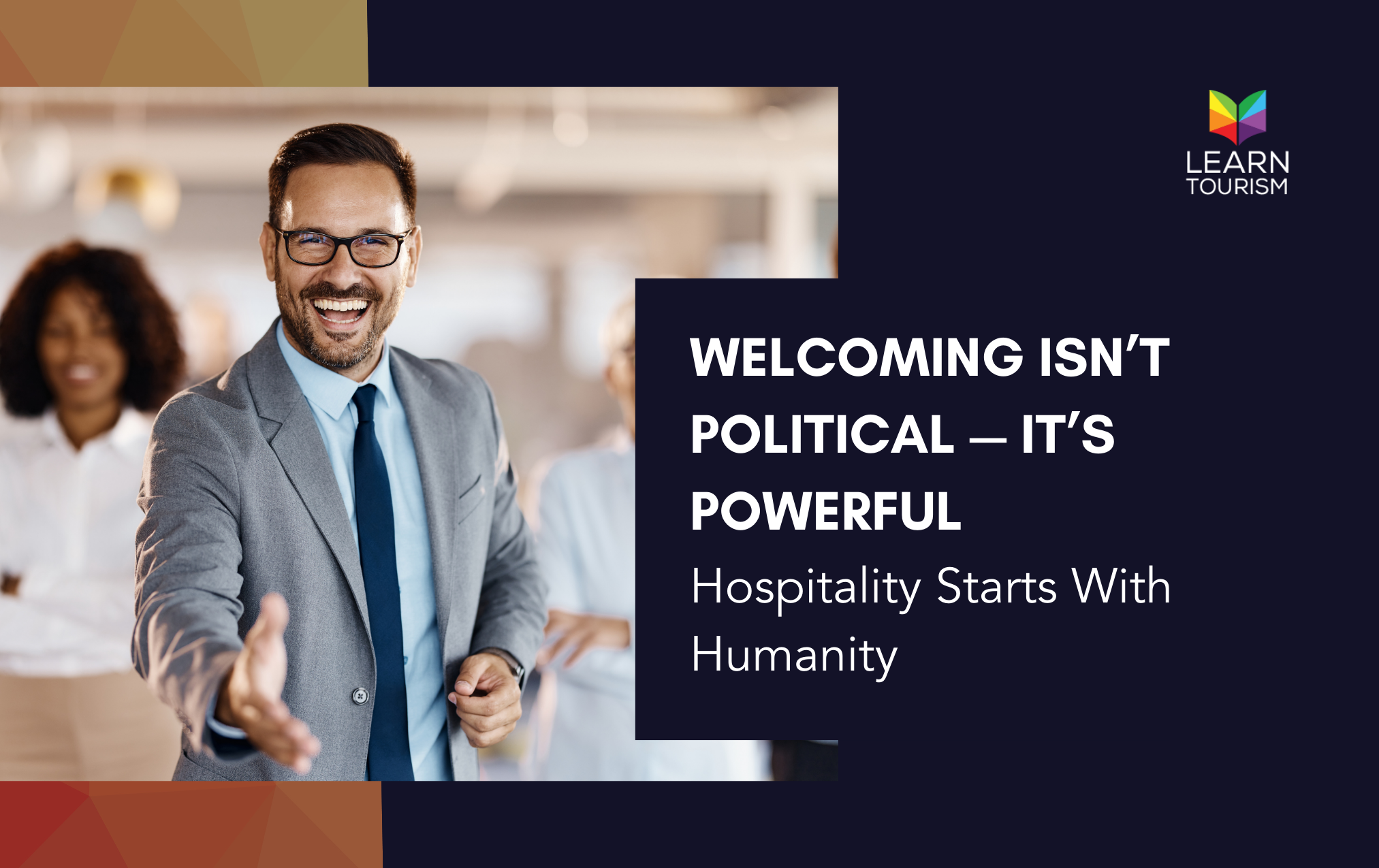
Welcoming Isn’t Political — It’s Powerful: Hospitality Starts With Humanity
There’s been much talk in recent years about the so-called "weaponization of travel." The idea is that travelers are using their destination choices to send a political message. But let’s reframe that.
What’s really happening is far simpler:
People want to go where they feel safe. Where they feel seen. Where they feel welcome.
According to the latest American Travel Sentiment Study (Wave 94) by Longwoods International and Miles Partnership, the influence of politics on U.S. travel has nearly doubled in just six months. In September 2024, 24% of travelers said political climate would greatly impact their travel decisions. By March 2025, that number jumped to 42%.
Even more telling:
-
20% of travelers now actively avoid certain cities or states based on political or legislative environments — up from 12% in November 2024.
-
Those altering itineraries to steer clear of specific areas increased from 10% to 15%.
-
And the share of travelers unaffected by politics has dropped sharply, from 60% to 46%.
This is a wake-up call.
Destinations can no longer write off travelers’ concerns about inclusivity, safety, or belonging as fringe issues. When nearly half of U.S. travelers say the political climate plays a role in their decision to visit, it’s not just a trend — it’s a shift.
Let’s be clear: visitors choosing destinations where they feel welcome isn't a political statement — it's a deeply personal one. It’s not about punishing places; it’s about protecting peace of mind.
💬 People want to spend their time, money, and energy where they’ll be appreciated.
And that makes perfect sense. Especially as inflation and affordability remain top concerns — with 83% of travelers expecting costs to stay the same or worsen — the emotional return on investment is more important than ever.
So what can a destination do when it finds itself on the wrong side of perception?
One word: education.
It starts with the basics—ensuring frontline hospitality workers understand the value of inclusive service. But it has to go further. Business leaders, elected officials, tourism partners, and even local influencers must understand their role in shaping a destination’s welcome mat.
And here’s where the hope comes in.
I’ve always believed this to be true:
“People everywhere are generally good and kind — they sometimes just need to be reminded how to demonstrate that kindness to others.”
I’ve seen that play out firsthand. One destination I worked with had been publicly criticized for policies that created fear and discomfort for certain communities. Rather than get defensive, their tourism board leaned into honest conversations. They convened local businesses, trained staff on inclusive practices, and started a community storytelling campaign amplifying voices from LGBTQ+ residents, immigrants, and people of color.
The result?
Visitors began to notice. Community pride grew. Perceptions started to shift.
That kind of work isn’t always fast, and it’s never one-size-fits-all. But it’s essential. When travelers make decisions based on where they feel welcome—and the data says they do—being welcoming becomes a critical business strategy, not just a feel-good gesture.
And here's the good news: Hospitality is a muscle. And we can flex it.
Let’s stop pretending this is about politics. It’s about people. And if destinations want to win the hearts of today’s travelers, they need to start by opening their own.
About the Author: Stephen Ekstrom
Stephen Ekstrom is the embodiment of a passionate lifelong learner and a seasoned professional in the tourism industry, serving as the CEO and co-founder of Learn Tourism - the nonprofit academy. With over 25 years of experience, he has cultivated a deep understanding of tourism development and education, driven by his commitment to advancing the industry and fostering sustainable economies. Stephen's insatiable curiosity and love for knowledge have led him to be a proud nerd, constantly seeking to expand his expertise and share his insights with others. Alongside his faithful furry companions, Rudy and Marjorie, he embraces the digital nomad lifestyle, traversing the globe and immersing himself in diverse cultures. A dedicated advocate for continuous improvement, Stephen is a professional member of the Association for Talent Development, and a member of Skal International. Stephen holds prestigious certifications in Inclusive and Ethical Leadership from USF, AI Governance and Ethics from Brown University, and Sustainable Business Strategy from Harvard Business School.